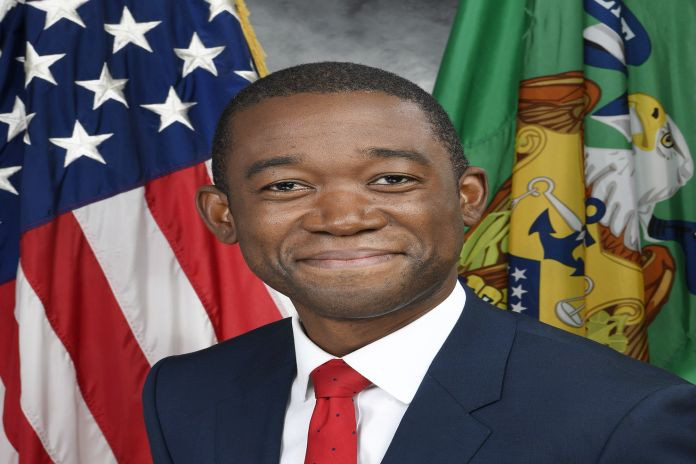- The following is an op-ed penned by Deputy Secretary of the Treasury Wally Adeyemo for Financial Times.
By Wally Adeyemo
Nearly two years ago, Russia invaded Ukraine, unleashing brutal and unprovoked violence. From the start, the US has unequivocally supported Ukraine and its people, through military aid as well as financial and humanitarian assistance. At the direction of president Joe Biden and Treasury secretary Janet Yellen, we have deployed our economic tools to accomplish two goals: disrupting Russia’s efforts to procure critical components to support its unjust war and limiting the Kremlin’s financial resources.
Today, the president will issue an executive order authorising the use of sanctions targeting foreign financial institutions that help Russia’s military-industrial complex. This fulfils a longstanding promise: as long as Russia’s invasion continues, we will level sanctions and export controls that undermine the Kremlin’s efforts to stockpile goods and technologies. We will not hesitate to use the new tools provided to take decisive, and surgical, action against institutions that facilitate the supply of Russia’s war machine. This announcement makes clear that those financing and facilitating the transactions of goods that end up on the battlefield will face severe consequences.
The sanctions we’ve already imposed, alongside a historic international coalition, have had a meaningful impact. Since February 2022, the Russian military has lost over 13,000 pieces of equipment, including tanks, UAVs and missile systems. It’s now struggling to rebuild its arsenal because of production constraints, a lack of workers and restricted access to foreign components. That’s why we’re seeing Russia pulling Soviet-era tanks and equipment out of storage even as our coalition has equipped Ukraine with modern technology.
The war and our actions have had a significant impact on the Russian economy. As the Kremlin’s defence spending rose by almost 75 percent in the first half of 2023, its energy revenues have dropped by almost 40 percent this year as the price cap regime deprived them of billions of dollars. Beyond energy exports, Russia is increasingly isolated in global economic trade, while facing a brain drain. Emigration has reached historic highs. Foreign direct investment has flipped into the negative. Overall, the Russian economy is 5 percent smaller than predicted prior to the war, far underperforming other oil-exporting countries.
Part of the reason for this regression is that, due to a lack of alternatives, Russia has converted itself into a war economy. Manufacturing capacity and the labour force have reoriented to weapons production. That’s largely because our export controls and sanctions have successfully put in place hurdles that prevent the Kremlin importing the electronics, machinery and materials it needs. This singular focus has weakened the domestic economy with elevated inflation rates and a benchmark interest rate of 16 percent.
But we know the Kremlin has charged its intelligence services with finding ways to circumvent these hurdles. We see this in the creation of cutouts, front companies and the use of witting and unwitting financial intermediaries. The executive order will give our coalition new tools to root out these networks.
Many financial institutions have already decided to stop doing business with Russia. Several governments are taking steps to prevent their institutions from providing material support for Russia’s war machine. With the new order, we are ready and able to move when others don’t. Financial institutions that continue to process transactions to Russia have a clear choice to make – stop all transactions from customers selling critical goods, or ensure these goods are not benefiting Russia’s war machine. Otherwise, you risk losing access to the US financial system.
This executive order comes at a critical juncture. By raising the stakes for banks supporting sensitive trade with Russia and continuing to sanction new front companies and procurement networks, our coalition is pouring sand into the gears of Russia’s military logistics. But while we slow Russia down, we must also actively build Ukraine up. It is imperative that the US and our allies continue to provide Ukraine with the resources to mount its defence and support its economy and people. We urge Congress to fully support the administration’s package of military, security, economic and humanitarian assistance.
Demonstrating our collective resolve in this moment will make clear to president Vladimir Putin – and other dictators around the world – that aggression will not be ignored. We will respond from every angle. As Biden has said, a Ukrainian victory is in our national interest and in the interest of our allies and partners.
Source: US Department of the Treasury





